Human rights in China are periodically reviewed by international bodies, such as human rights treaty bodies and the United Nations Human Rights Council's Universal Periodic Review. The Chinese Communist Party (CCP), the government of the People's Republic of China (PRC), their supporters, and other proponents claim that existing policies and enforcement measures are sufficient to guard against human rights abuses. However, other countries, international non-governmental organizations (NGOs) including Human Rights in China and Amnesty International, and citizens, lawyers, and dissidents inside the country, state that the authorities in mainland China regularly sanction or organize such abuses.

The National Endowment for Democracy (NED) is a quasi-autonomous non-governmental organization in the United States founded in 1983 with the stated aim of advancing democracy worldwide, by promoting political and economic institutions, such as political groups, business groups, trade unions, and free markets.
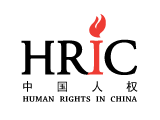
Human Rights in China is a New York–based international, Chinese, non-governmental organization with intentions to promote international human rights and facilitate the institutional protection of these rights in the People's Republic of China. HRIC is a member organization of the International Federation for Human Rights. According to Fang Lizhi, HRIC is committed to an independent, non-political, and intelligent approach
Free Tibet (FT) is a non-profit, non-governmental organisation, founded in 1987 and based in London, England. According to their mission statement, Free Tibet advocates for "a free Tibet in which Tibetans are able to determine their own future and the human rights of all are respected."

The International Campaign for Tibet (ICT) is a non-profit advocacy group working to promote democratic freedoms for Tibetans, ensure their human rights, and protect Tibetan culture and the environment. Founded in 1988, ICT is the world's largest Tibet-related NGO, with several thousand members and strong bases of support in North America and Europe. On March 15, 2018, the ICT completed 30 years of service to the Tibetan community and received a video message from the Dalai Lama. ICT also released its new logo. An event was also held in the United States Congress on March 6, 2018 to mark the event with Congressional leaders Nancy Pelosi, Ileana Ros-Lehtinen, Jim McGovern, ICT Chairman Richard Gere, Representative Ngodup Tsering and ICT Board Member Tempa Tsering making remarks.
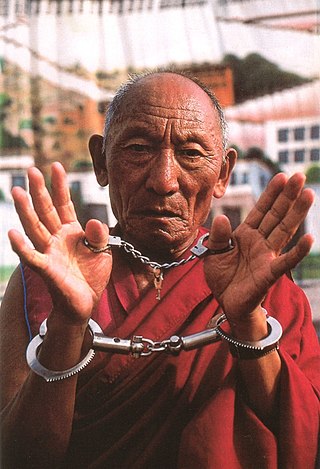
Palden Gyatso was a Tibetan Buddhist monk. Arrested for protesting during the Chinese invasion of Tibet, he spent 33 years in Chinese prisons and labor camps, where he was extensively tortured, and served the longest term of any Tibetan political prisoner. After his release in 1992 he fled to Dharamsala in North India, in exile. He was still a practicing monk and became a political activist, traveling the world publicizing the cause of Tibet up until his death in 2018. His autobiography Fire Under the Snow is also known as The Autobiography of a Tibetan Monk. He was the subject of the 2008 documentary film Fire Under the Snow.

Tibetan Uprising Day, observed on March 10, commemorates the 1959 Tibetan uprising which began on March 10, 1959, and the Women's Uprising Day of March 12, 1959, involving thousands of women, against the presence of the People's Republic of China in Tibet.
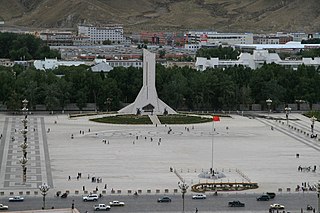
The sinicization of Tibet includes the programs and laws of the Chinese government and the Chinese Communist Party (CCP) to force cultural assimilation in Tibetan areas of China, including the Tibet Autonomous Region and the surrounding Tibetan-designated autonomous areas. The efforts are undertaken by China in order to remake Tibetan culture into mainstream Chinese culture.
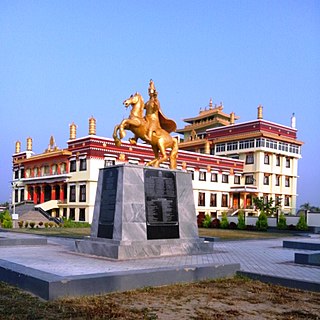
The Tibetan diaspora is the relocation of Tibetan people from Tibet, their country of origin, to other nation states to live as exiles and refugees in communities. The diaspora of Tibetan people began in the early 1950s, peaked after the 1959 Tibetan uprising, and continues.
Human rights in Tibet has been a subject of intense international scrutiny and debate, particularly since the annexation of Tibet by the People's Republic of China. Before the 1950s, Tibet's social structure was marked by inequality and described as a caste-like system or, controversially, as serfdom. Severe punishments, including permanent mutilations of body parts, were common, although capital punishment was banned in 1913. Muslim warlord Ma Bufang caused widespread destruction and deaths in Amdo which is northeast of Central Tibet.
The Tibetan Centre for Human Rights and Democracy (TCHRD) is a Tibetan non-governmental nonprofit human rights organization.

The Tibet Post is an online publication founded by a group of Tibetan journalists with the primary goal of promoting democracy through freedom of expression within Tibetan communities who are both within and outside of Tibet.

The term "Vietnamese democracy movement" comprises any of various isolated efforts to seek democratic reforms in Vietnam. There is not a major movement in Vietnam to reform the current political system. Opposition to governance has been characterised by sporadic calls for reform by minor groups and rare, small protests. Vietnam was ranked 37th most electoral democratic country in Asia according to V-Dem Democracy indices in 2023 with a score of 0.157 out of 1.
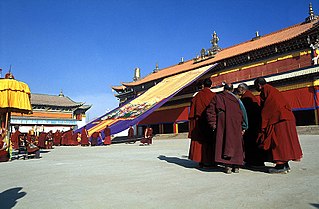
Kirti Gompa, is a Tibetan Buddhist monastery founded in 1472 and located in Ngawa, Sichuan province, in China, but traditionally part of Amdo region. Numerous other associated Kirti monasteries and nunneries are located nearby. As of March 2011, the Kirti Gompa was said to house 2,500 monks. Between 2008 and 2011, mass arrests and patriotic re-education programs by Chinese authorities have targeted the monks, reducing the population substantially to 600 monks. The wave of Tibetan self-immolations began at Kirti Gompa.

Protests and uprisings in Tibet against the government of the People's Republic of China have occurred since 1950, and include the 1959 uprising, the 2008 uprising, and the subsequent self-immolation protests.

As of May 2022, 160 monks, nuns, and ordinary people have self-immolated in Tibet since 27 February 2009, when Tapey, a young monk from Kirti Monastery, set himself on fire in the marketplace in Ngawa City, Ngawa County, Sichuan. According to the International Campaign for Tibet (ICT), "Chinese police have beaten, shot, isolated, and disappeared self-immolators who survived."

Chen Quanguo is a Chinese retired politician who was the Chinese Communist Party Committee Secretary of Tibet Autonomous Region from 2011 to 2016 and of the Xinjiang Uyghur Autonomous Region from 2016 to 2021, making him the only person to serve as the Party Secretary for both autonomous regions. Between 2017 and 2022, he was a member of the 19th Politburo of the Chinese Communist Party and was also Political Commissar of the Xinjiang Production and Construction Corps concurrently with his position as Xinjiang Party Secretary.

Tibet on Fire: Self-Immolations Against Chinese Rule is a book written by Tsering Woeser, published by Verso Books in 2016. The book is a contemporary look at a major social and human rights problem caused by the forced integration of Tibetan and Chinese societies, and due to empirically repressive policies of the Chinese (PRC) government.
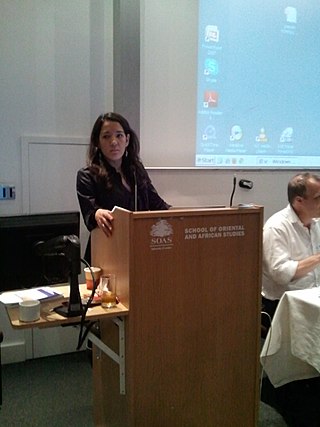
Lhadon Tethong is a Tibetan-Canadian political activist, co-founder and director of Tibet Action Institute, and former executive director of Students for a Free Tibet.
















